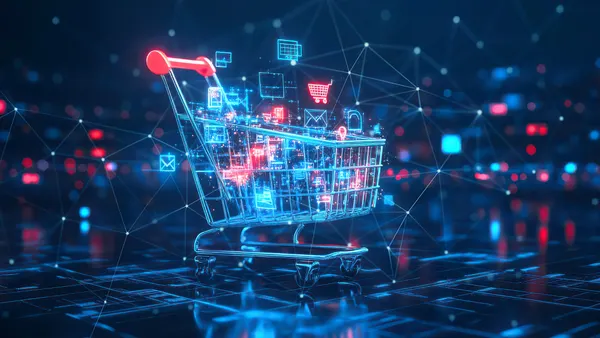Dive Brief:
- Amazon will hold its third annual Robotics Challenge in July in Japan, with 16 teams of finalists from schools including the Massachusetts Institute of Technology, Princeton and Carnegie Mellon University, CNBC reported Wednesday. Other competitors from around the world will also participate.
- Whichever team succeeds in crafting a robot able to recognize objects, execute tasks, detect errors, recover as needed and grab objects will win the $250,000 prize. Scoring is based on the number of items successfully picked and stowed within a set time frame.
- At present, the company uses wheeled robots within its factories, but is seeking an alternative better able to navigate within a system not necessarily readable by current models. Amazon hopes the competition will present an alternative.
Dive Insight:
Amazon's purchase of warehouse robotics all-star Kiva in 2012 provided the company with an undeniable competitive advantage: By snapping up the advanced picking robot provider, and refusing to sell the product to anyone else, the company left other warehouses grasping for solutions.
Bloomberg reports it took four years for the robotics industry to catch up, and now that competition is back, Amazon is looking for the next big thing.
The real goal of the Robotics Challenge is to find a robot capable of actually picking — of selecting individual objects no matter their order or placement without the need for assistance. Once this fine muscle, perception-based skill is mastered, full or at least nearly full, automation may ensue.
And the competition's $250,000 prize is nothing compared to the savings Amazon could gain. In 2016, Amazon deployed roughly 30,000 Kiva robots, providing a 20% cost savings for the company, according to Bloomberg. With $22 million in fulfillment expenses saved per warehouse automated, fully automating all its remaining distribution centers could save the company $2.5 billion.
It may take some time to perfect, but it could be the end goal for the founder of a company who at a recent event described artificial intelligence as "a renaissance, it is a golden age.”














